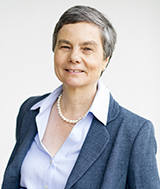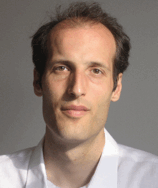London Mathematical Society award successes
Mathematicians from Warwick have received prestigious awards from the London Mathematical Society. The London Mathematical Society (LMS) awarded only four senior prizes in 2014 with three going to Warwick academics, for work ranging from revolutionising probability theory, dimensional algebraic geometry, additions to the mathematical lexicon and furthering the role of women in mathematics.
Professor Caroline Series was awarded the Senior Anne Bennett Prize
 Professor Caroline Series, a Fellow of the American Mathematical Society and the Institute of Mathematics and Applications, was awarded the Senior Anne Bennett Prize “in recognition of her leading contributions to hyperbolic geometry and symbolic dynamics, and of the major impact of her numerous initiatives towards the advancement of women in mathematics”.
Professor Caroline Series, a Fellow of the American Mathematical Society and the Institute of Mathematics and Applications, was awarded the Senior Anne Bennett Prize “in recognition of her leading contributions to hyperbolic geometry and symbolic dynamics, and of the major impact of her numerous initiatives towards the advancement of women in mathematics”.
The awarding of the Senior Anne Bennett Prize follows Professor Series’ leading role in initiatives for female mathematicians. Following her involvement with the foundation of European Women in Mathematics (EWM), Professor Series developed the British Women in Maths Day and became chair of the European Mathematical Society Women in Mathematics Committee. In recent years she has also been involved in international initiatives for women mathematicians, in particular building a website, due to launch in August 2014, which will be a global resource for women mathematicians under the auspices of the International Mathematical Union.
Professor Miles Reid was awarded the Polya Prize
 Cited for his “exceptionally creative work on higher dimensional algebraic geometry”, Professor Miles Reid was awarded the Polya Prize.
Cited for his “exceptionally creative work on higher dimensional algebraic geometry”, Professor Miles Reid was awarded the Polya Prize.
Terms invented by Professor Reid and his co-authors are now part of the common language of geometry: extremal rays (with Mori), discrepancy, thresholds, crepant resolutions, canonical singularities, general elephants, flops and flips, pliability (with Corti), the “age” grading in orbifold cohomology, unprojection, diptych varieties (with Brown) and ice cream functions (with Buckley and Zhou). The LMS argue that “This florid terminology is but an example of a creative and uniquely personal style of mathematical presentation”.
Professor Martin Hairer was awarded the Frohlich Prize.
 Announcing the Frohlich prize the LMS cited Professor Hairer, a Fellow of the Royal Society, for “revolutionising the entire field of research lying between probability theory and partial differential equations” and “explained how, in a simple but reasonably generic example, different regularisations produced different numerical limits, and by connecting these examples directly to rough path theory he made it clear that noise had to be represented and regularised using a rough path”.
Announcing the Frohlich prize the LMS cited Professor Hairer, a Fellow of the Royal Society, for “revolutionising the entire field of research lying between probability theory and partial differential equations” and “explained how, in a simple but reasonably generic example, different regularisations produced different numerical limits, and by connecting these examples directly to rough path theory he made it clear that noise had to be represented and regularised using a rough path”.
